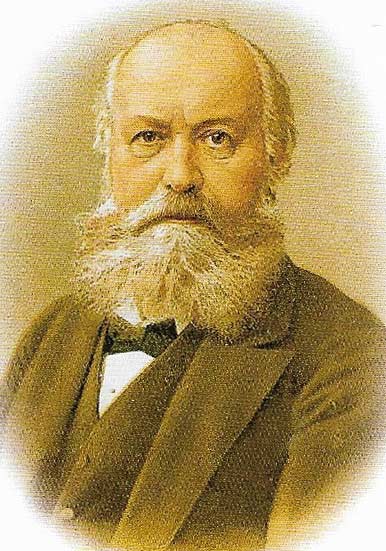Gounod, Charles (1818–1893)

Charles Gounod is remembered today chiefly for his opera Faust, based on Goethe's drama; and for the song "Ave Maria", an arrangement of his Meditation for violin on Bach's Prelude No. 1 in C. In fact, he was a prolific composer whose music was influential in both France and England.
Gounod's father was a painter and his mother a pianist. Like Berlioz, he studied at the Paris Conservatoire, winning the Prix de Rome in 1839. In Italy he fell under the spell of 16th-century polyphonic music, and began to write sacred music of his own (he also seriously considered becoming a priest). But he also met two influential women – the singer Pauline Viardot-Garcia (1821–1910), who introduced Gounod to the theatrical world, and Fanny Hensel (1805–1847), who introduced him to her brother Felix Mendelssohn. In 1843 Gounod visited the Mendelssohns in Leipzig, where he heard the famous Gewandhaus Orchestra, and music by Bach (then rarely performed).
Opera
On returning to Paris Gounod began to write grand operas in the currently fashionable style of Meyerbeer, together with elaborate masses and other church music. His opera Faust was performed at the Théâtre-Lyrique in 1859, and was an instant success: Gounod's gift for memorable tunes (such as the "Soldier's Chorus" and Marguerite's "Jewel Song"), and his subtle musical characterization of the doomed lovers, appealed to a Parisian audience growing weary of Meyerbeerian bombast. None of his other operas (even Roméo et Juliette, 1867) was ever quite as successful.
England
Between 1870 and 1875 Gounod took refuge from the Franco-Prussian War in England, where his music appealed to Victorian sentimentality. Here, he acquired a ferocious English mistress, Georgina Weldon (he was chronically unfaithful), and founded the Gounod Choir, which eventually became the Royal Choral Society. In the 1880s he was preoccupied with composing oratorios (two of which were written for the Birmingham and Norwich festivals). Apart from the popular Petite symphonie for 10 wind instruments (1885), few of his later works have survived the test of time.
Major works
Faust (1859); Roméo et Juliette (1867); La rédemption (1881); Mors et vita (1884).


